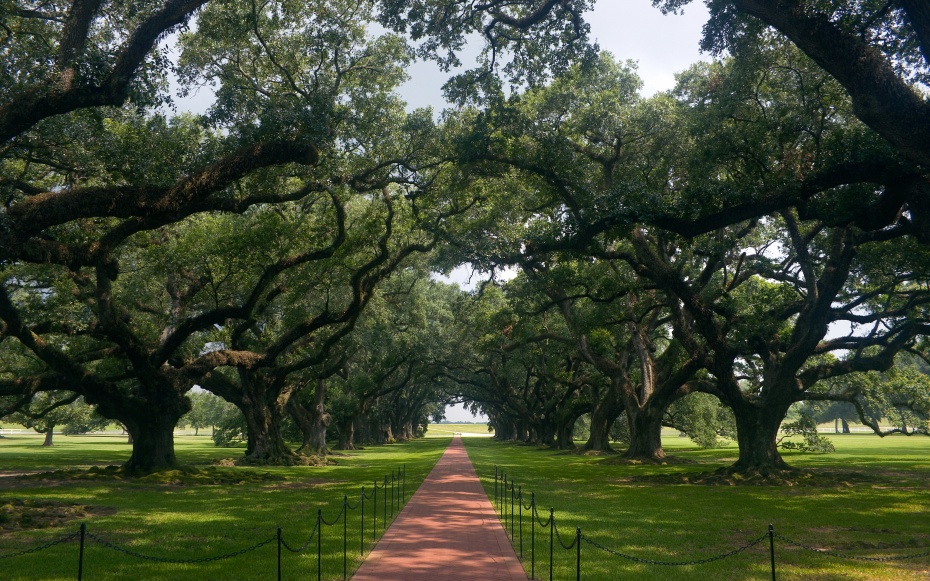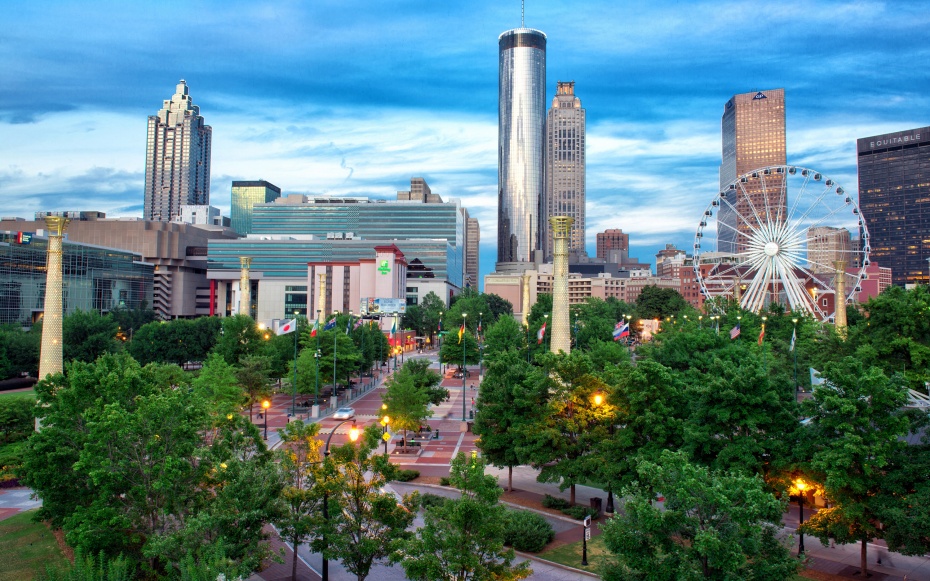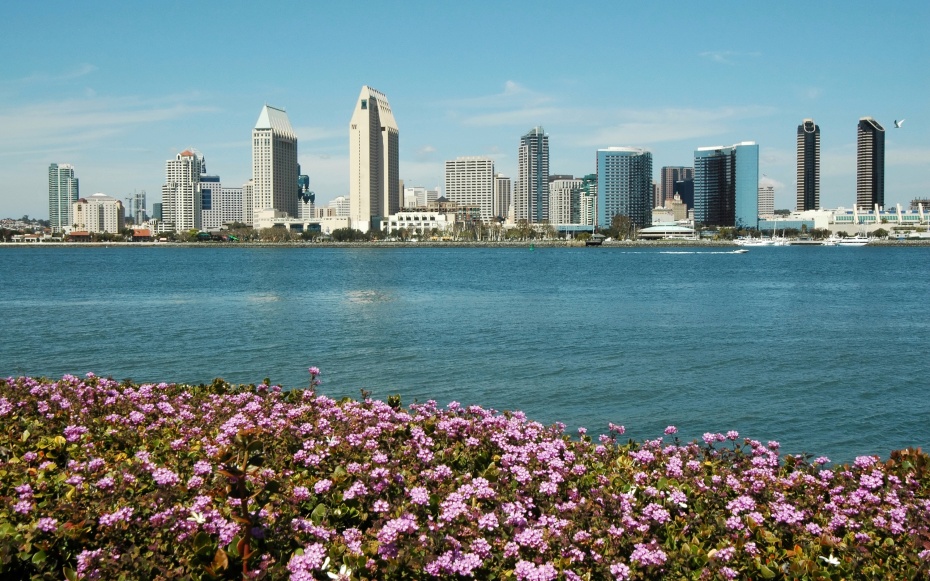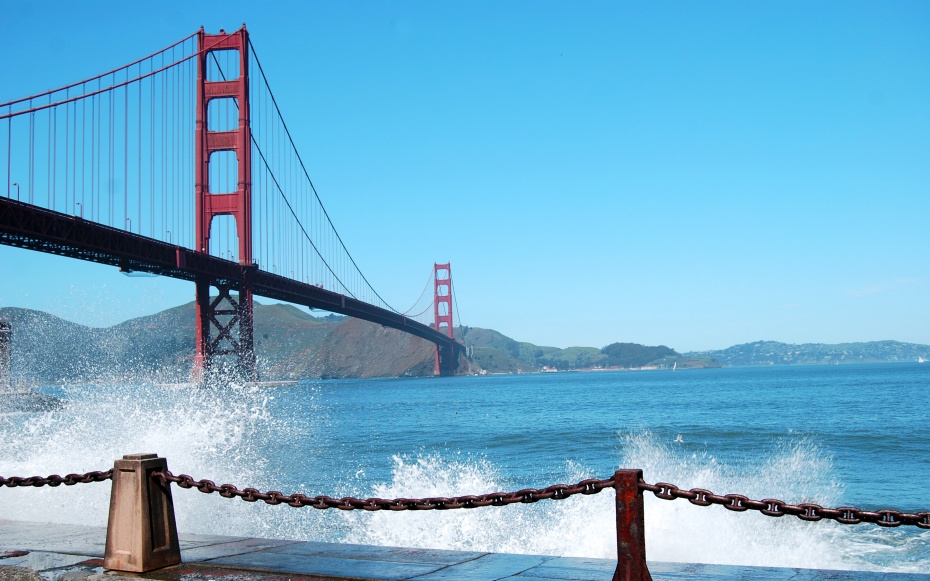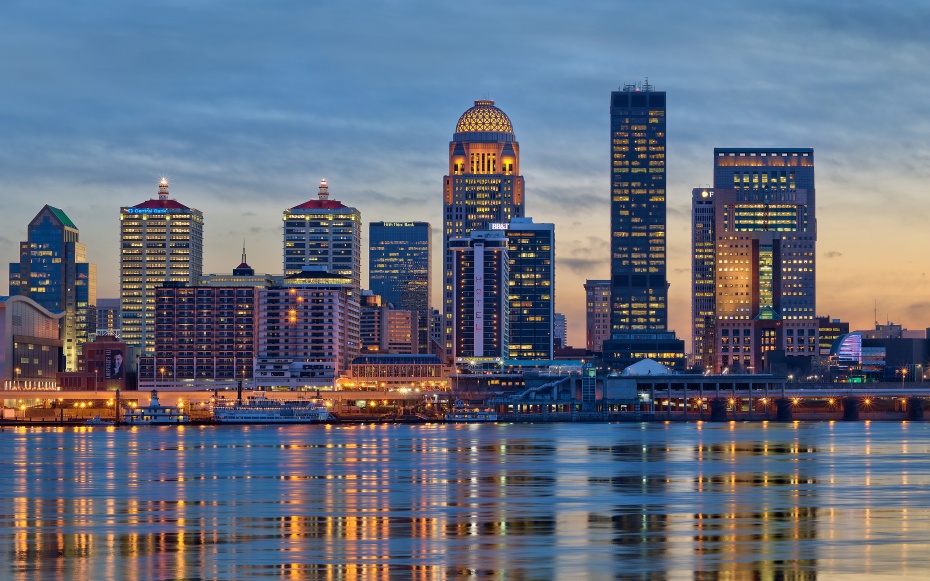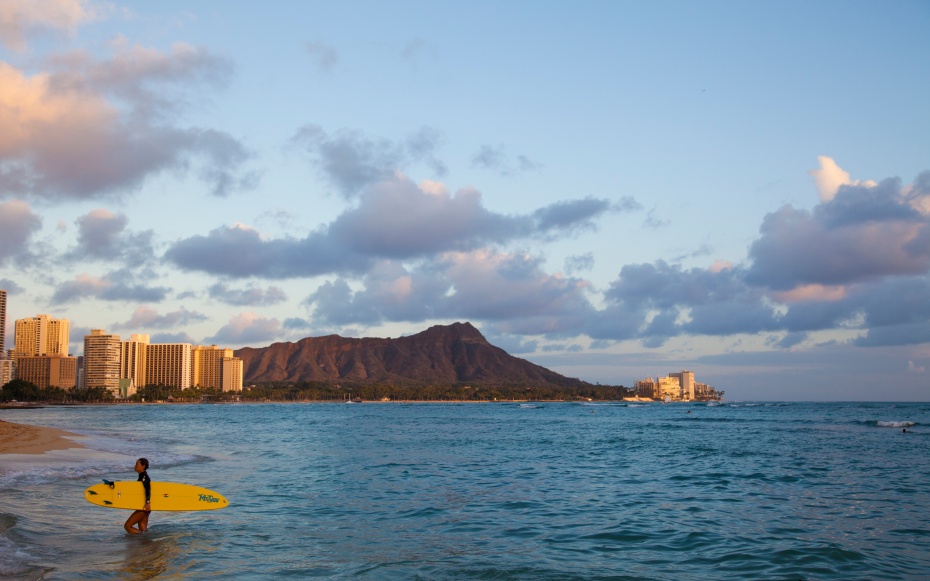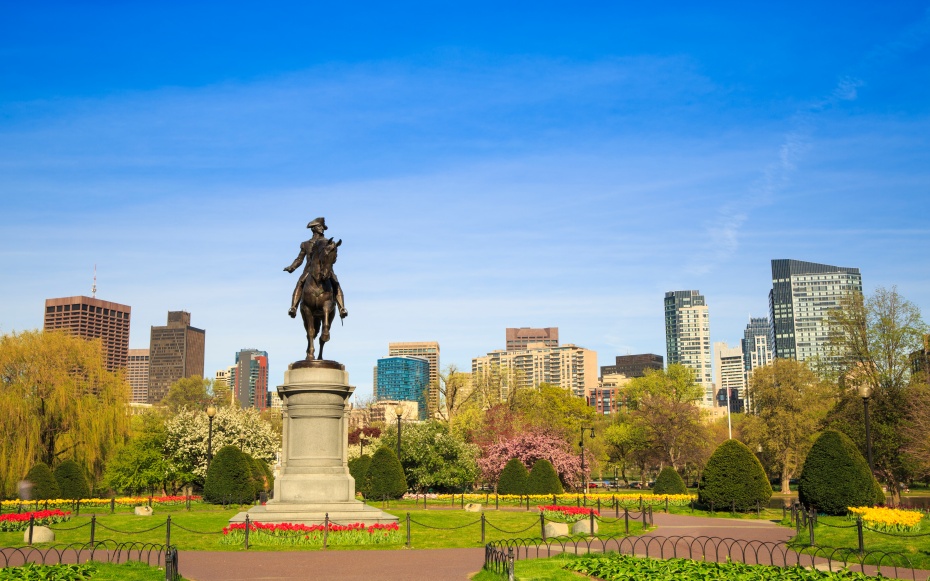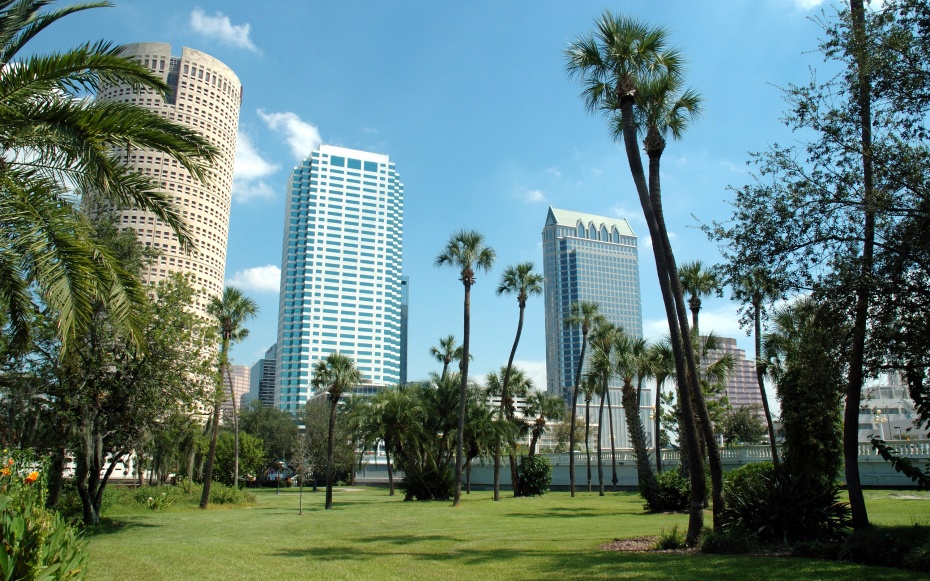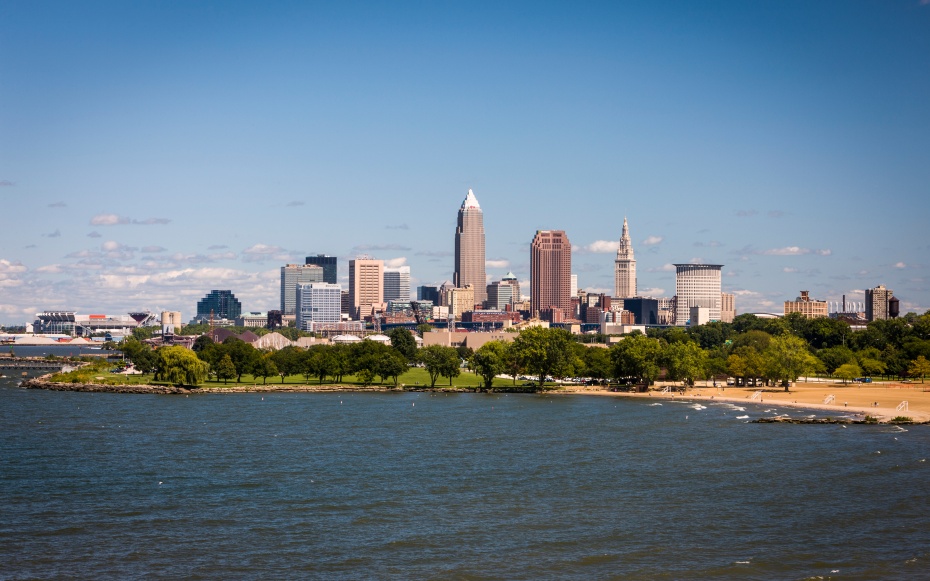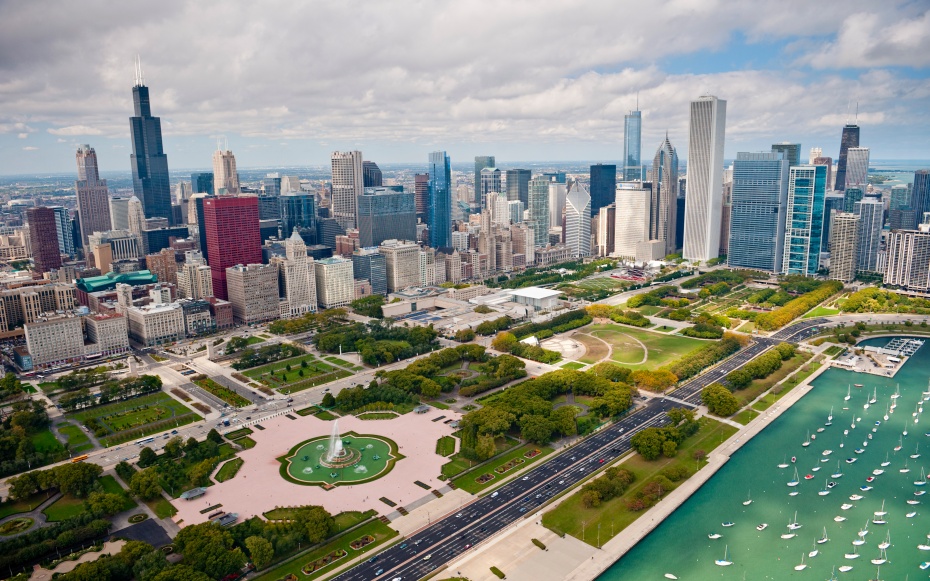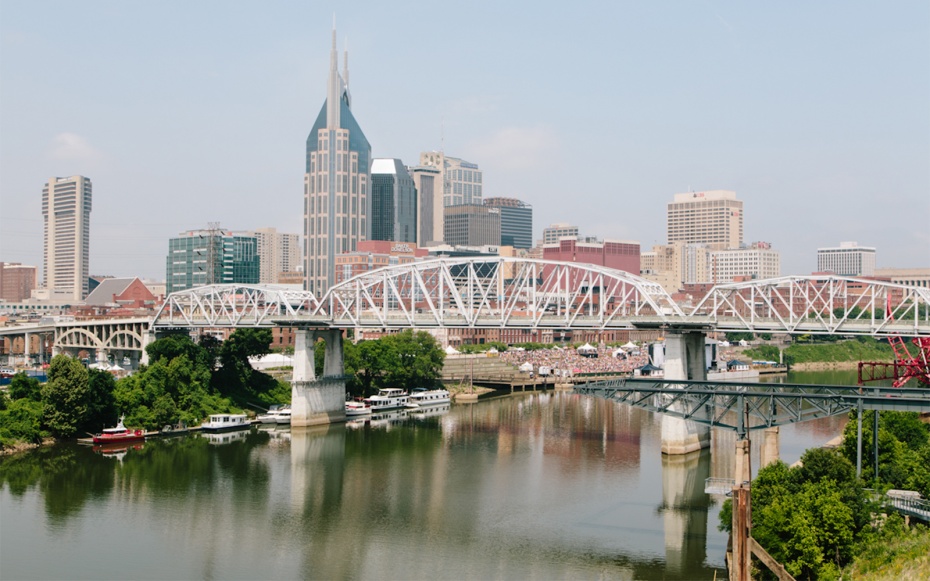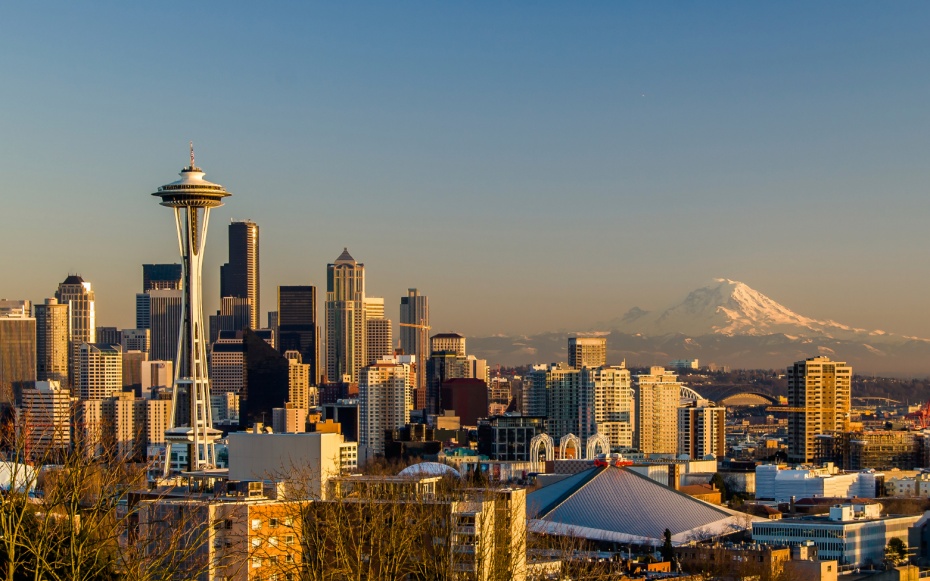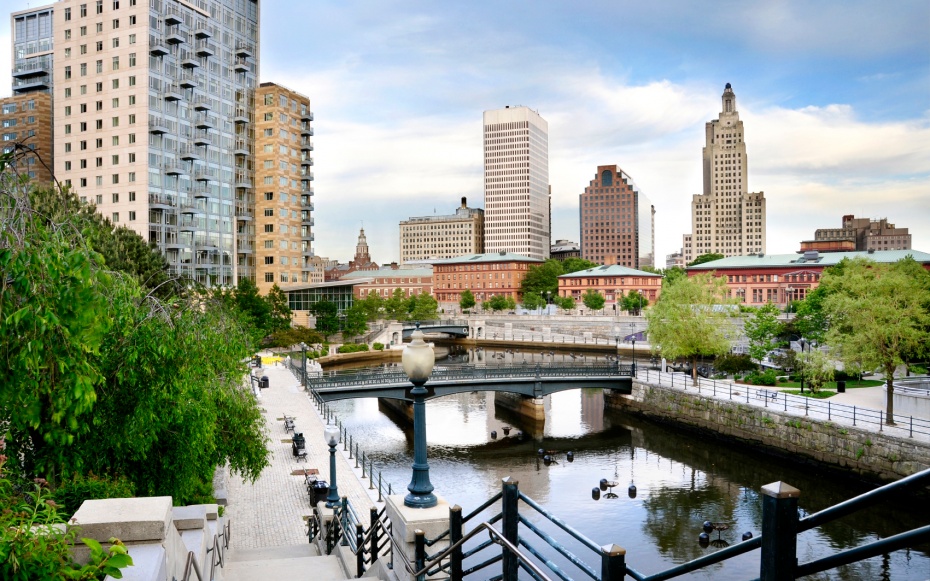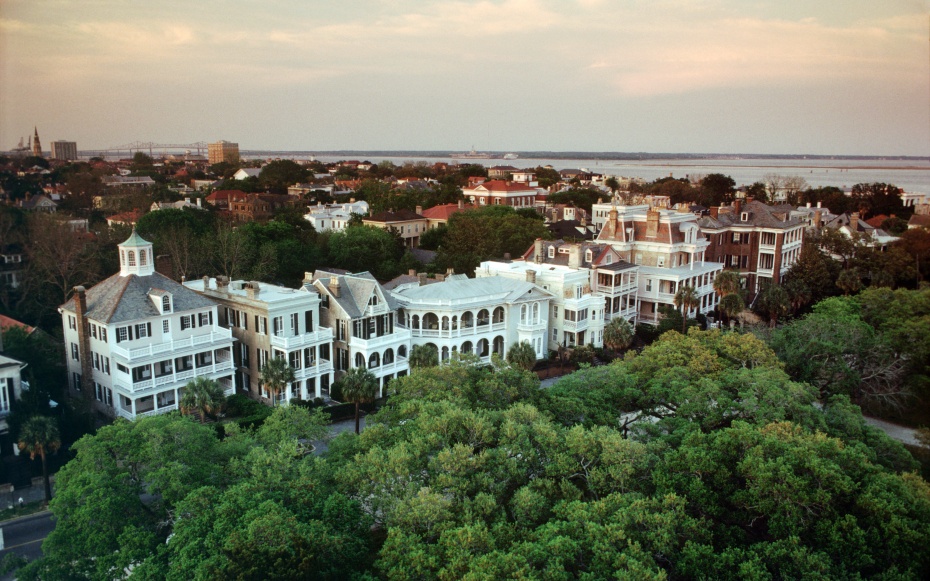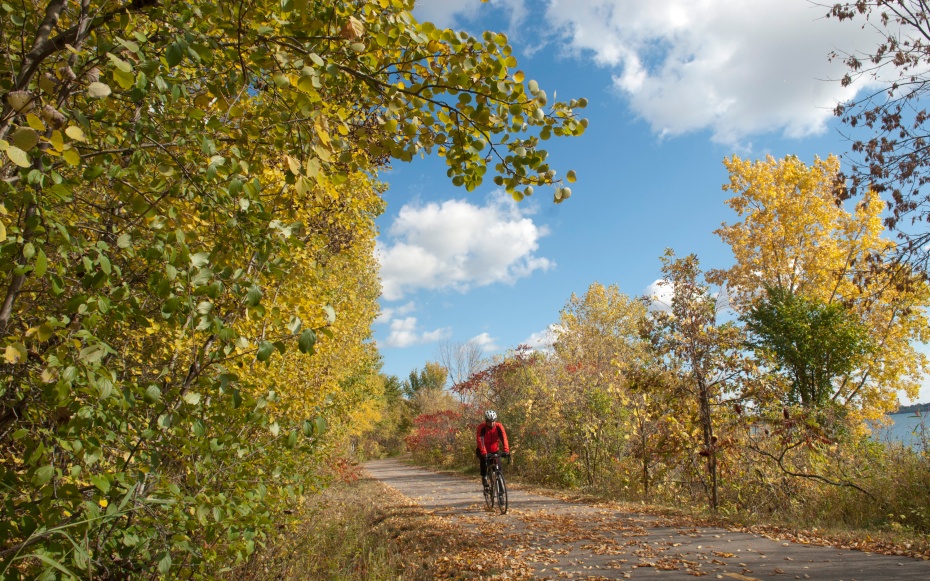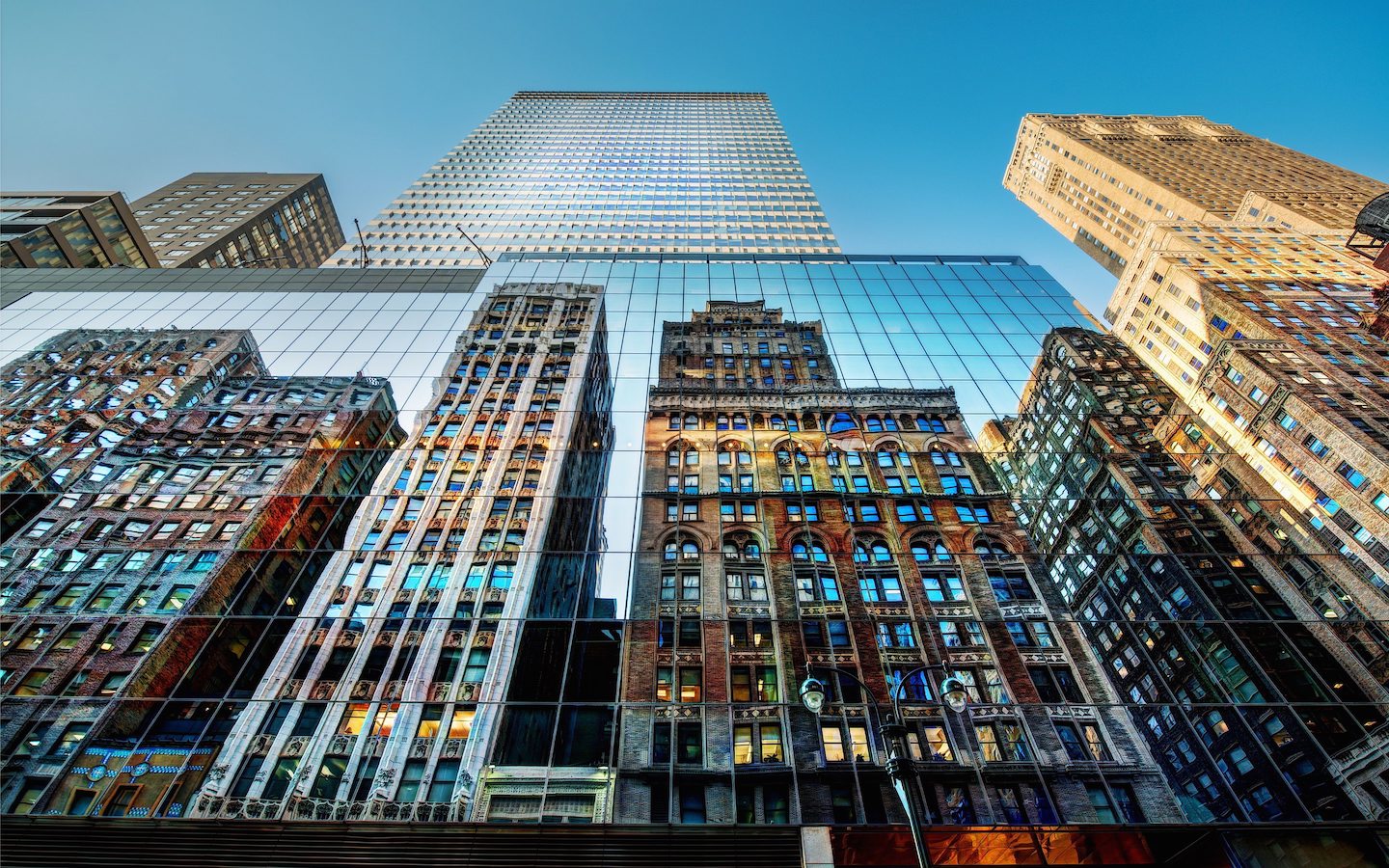“Being green isn’t just smart — it might even make you gorgeous.”
Irene Lane, founder of ecotourism “concierge” Greenloons, loves that Portland, Oregon, was environmentally proactive long before it was cool—like when the city took out a six-lane highway in the 1970s to develop a waterfront park. Today, she says, Portland “is a model of sustainable living, gaining half of its power from renewable sources—and everyone seems to glow with their eco-conscious awareness.”
As part of the survey, readers ranked 38 cities for such eco-friendly features as parks, mass transit, notable restaurants (which tend to favor local sourcing) and—the ultimate in fun recycling—treasure-filled flea markets.
When we combined those categories, the “greenest” winners revealed some traveler-friendly trends across the nation: LEED-certified hotels that use less water, an increasing number of city bike-share programs, and restaurants that tout their locally-sourced cuisine—from burnt-ends barbecue in Kansas City to grilled frog legs in Tampa. Some winners have had eco-friendly features for years—like the wind-powered schooner tours in Charleston and the ever-reusable aloha shirts in Honolulu.
Other top 20 cities, meanwhile, are making environmental changes just like many people do: one step at a time. Lane lives in Washington, D.C., where, she says, the city’s dining scene may be greener than some other features. “We may be one of the worst cities for traffic jams,” she says, “but at least you can look forward to a fantastic meal when you get to your destination.”
From our partners:
No. 20 New Orleans
New Orleans has been eating local and restoring its treasures well before such practices were cool: This year it won the survey for cool antique shops, like the legendary M.S. Rau Antiques on Royal Street. For recycled vintage fashions, you can browse the 1940s dresses and ’80s leather jackets at Magazine Street’s Revival Outpost (or you can shop for new, fair trade apparel at nearby Branch Out). New Orleans also won the survey for its notable restaurants, and one notably local eatery is Purloo—so-named after the Southern concoctions of meat and rice—which just debuted at the Southern Food and Beverage Museum. As proof that good times are recyclable, the city also won the survey for its reliably wild weekends.
No. 19 Atlanta
Atlanta may have secured its spot in the top 20 thanks to its efforts to reclaim green space. A prime example is the Atlanta Beltline, along a former railroad corridor, which will feature 33 miles of trails once it’s completed. Today’s best strolls or bike rides are along the Eastside Trail, which is the site of the annual Lantern Parade and, year round, offers easy access to the restaurant-lined Ponce City Market. Atlanta also scored in the top 10 for its cocktail lounges: The Georgian Terrace Hotel’s Proof and Provision combines celebrity history (the cast of Gone with the Wind stayed on the hotel for the movie’s premiere) with thoughtfully-sourced artisan cocktails, like the Aviation—made with gin, crème de violet and lemon juice. The city also ranked at No. 5 for its happening singles scene.
No. 18 Houston
It may seem like a classic sprawling city, but Houston is greener than it looks: it gets 25 percent of its electricity from wind energy, and the city just introduced a two-way bike track that spans 10 blocks of downtown. Houston proves that even good-ol’-boy types can go green: the Beer Can House found fame after a homeowner re-sided his house with 50,000 recycled beer cans. As one of the nation’s four green coffee-exchange ports, Houston also ranked at No. 5 for its java, like the vacuum-prepared cups at Montrose’s Siphon Coffee (where you can also play on the retro Ms. Pac Man).
No. 17 Albuquerque
With its mild weather and fertile soil, this New Mexico city has always had a natural advantage in eco-friendly living. The Saturday morning Downtown Growers’ Market is solar-powered, and downtown’s Hotel Andaluz lets guests shower with solar-heated water. Albuquerque locals ranked at No. 9 for being active, and they might welcome you to break a sweat for your locally-sourced supper: At Los Poblanos Historic Inn & Organic Farm, they prepare meals using their own produce, and invite hotel guests to work the fields with them during their stays.
No. 16 San Diego
In drought-stricken California, some green perks have been born out of necessity: some hotels, like North Park’s Lafayette Hotel, have installed aerators in the showers to cut down on water use. The Lodge at Torrey Pines (home of the renowned farm-to-table A.R. Valentien), meanwhile, has been applauded for diverting an impressive 75 percent of its trash into recycling or compost. San Diego ranked well in the survey for family vacations, and its big theme parks have adapted eco-friendly practices, too: each of Legoland’s benches is made from 800 plastic milk jugs, while the park’s Lego models—like the Lego-constructed Sydney Opera House—are cleaned with powdered walnut shells instead of chemical cleansers.
No. 15 San Francisco
The city that ranked at No. 7 for its fashionable denizens has always been ahead of the curve: it was one of the first cities to ban plastic bags and today, most city cabs (and the Hornblower ferry used by Alcatraz Cruises) are hybrids. The city also ranked near the top for its great wine culture; for a particularly eco-friendly wine tasting, go to partner wine bars Yield (in Dogpatch) or Pause (on Market Street) which only serve sustainably made wines, many of which are certified as organic or biodynamic. Before you head home, you can institute your own plastic-bag ban by picking up an elegantly artsy tote from Rickshaw Bags.
No. 14 Louisville
The Kentucky city made an eye-catching debut on the survey this year, ranking in the top 20 for its endearingly quirky locals. Some of the city’s greenest features, too, are nicely offbeat: downtown’s ReSurfaced is a pop-up plaza of art, music and a beer garden, built on a former vacant lot with old shipping containers and bamboo. While Louisville didn’t make the top 20 this year for parks, readers may not have seen all of them: Louisville Mega Cavern—made with recycled concrete, brick, rock and dirt—features the world’s only fully underground zip line, as well as the new Underground Bike Park. Meanwhile, in the NuLu neighborhood, Harvest is farmer-owned and decorated with photos of other local farmer suppliers; Louisville made the top 10 for its burgers, and Harvest’s contributions include burgers topped with smoked chevre and hog-jowl-bacon jam.
No. 13 Honolulu
The Hawaiian city has long known the benefits of being green: eating local costs less than importing everything else, and driving an electric car helps mitigate the islands’ high fuel costs (if you rent an electric car, hotels like the Sheraton Waikiki and The Royal Hawaiian have charging stations). The locals also get credit for recycling their timeless fashion sense; you can replicate the look by shopping for a vintage aloha shirt at Bailey’s Antiques & Aloha Shirts, on Kapahulu Ave., or picking up a skirt, top, or even throw pillow at Mu’uMu’u Heaven, which upcycles using “vintage aloha fashions.” Those vivid patterns are clearly flattering: these Hawaiians made the top 10 for being good-looking.
No. 12 Boston
The Freedom Trail is one reason readers applauded Boston for being pedestrian-friendly, and its mass transit system is the oldest in the U.S. Something about the city, though, brought out readers’ sweet tooths: baked goods ranked in the top 10, like the locally sourced Turkish delight shortbread at Sofra Bakery and Café in Cambridge, or the chocolate-filled Berliners at Swissbakers in Allston (which calls its green initiatives “grandchild-sustainable,” meaning no practice could affect future generations). To work it off, paddle your way through a guided kayaking tour with Charles River Canoe & Kayak.
No. 11 Tampa
The Florida city got high marks for its seemingly unpolluted vibe, ranking in the top 10 for both cleanliness and quiet. The city also has its own flavor of farm-to-table eating: Fodder & Shine in Seminole Heights salutes the early 20th century “Florida Cracker” cuisine—like rabbit and cornmeal dumplings, grilled frog legs and “cracker” beef pot roast, derived from the smaller, local cows. And at Elevage, in the Epicurean Hotel, the menu is not so much farm-to-table as wall-to-table: you can select your salad from a living wall inside the hotel (and do likewise in the hotel’s Evangeline spa, which has a living wall of treatment herbs). Bayshore Boulevard is a scenic spot for renting a bicycle, and you can ride without fear: the locals ranked in the survey’s top 10 for being good drivers.
No. 10 Washington, D.C.
Aside from some man-made gridlock, our nation’s capital made the green top 10 thanks in part to its extensive mass transit. But D.C. also has more than 230,000 acres of park space, from Rock Creek Park to the 57-acre grounds of the Washington National Cathedral, where you can buy herbs harvested from its gardens. Perhaps as a tribute to our farm-owning founding fathers, the 139-room Hotel George lets you donate $10 from your daily rate to the Nature Conservancy or the Trust for Public Land. For dinner, LEED- and Green-Restaurant-certified Founding Farmers, three blocks from the White House, serves locally sourced Yankee Pot Roast and apple pie.
No. 9 Cleveland
Despite its industrial persona, the Rust Belt city also made No. 9 for its outdoor enticements—like Simmons Park, which was cultivated on the site of a former gas station. Otherwise, readers gave Cleveland credit for its good eating, ranking it in the top 10 for both burgers and bakeries. Cleveland’s eco-conscious diners love TownHall, in Ohio City, which boasts of being one of the few restaurants in the U.S. to offer a completely GMO-free menu, including a Kobe beef bolognese bowl with roasted spaghetti squash. To appreciate the city’s No. 4 ranking for beer, go to the tasting room of Great Lakes Brewing Co., which sources from its own organic farm, uses the beer’s spent grain for its brewpub pretzels and fuels its delivery trucks with vegetable oil.
No. 8 Chicago
As a lovely accent to its world-class architecture, the Windy City has a strong commitment to its green spaces, which ranked in the survey’s top 10. The newest slice of nature in the city is the 20-acre Maggie Daley Park, which has a grassy, hilly landscape (including the winter Skating Ribbon) that was designed to minimize road noise; meanwhile, the elevated Bloomingdale Trail—connecting Wicker Park, Logan Square, and Humboldt Park—will open in June. Chicago also made the top 10 for chef-driven restaurants: Rick Bayless can claim two of Chicago’s three-star-rated, Green-certified restaurants: Frontera Grill and Topolobampo.
No. 7 Nashville
Some cities boast their LEED-certified hotels, but Music City has the Southeast’s first LEED-certified neighborhood. The Gulch—not far from famed Music Row—won the honor for having everything from good mass transit to LED traffic lights and plenty of amenities within a half-mile walk: two good stops are Peg Leg Porker, a purveyor of the city’s top-5-ranked barbecue, and the bourbon-rich Whiskey Kitchen, which supports the city’s silver-medal win for bars. The city’s locals may consider the word “please” to be a renewable energy source: they ranked near the top for being polite.
No. 6 Seattle
With a nickname like Emerald City, Seattle has a solid claim on being green: it also made the top 20 for its parks (like Gas Works Park, on a former utility-company site), which cover about 10 percent of the whole city. One of the greenest places to stay is downtown’s Hyatt at Olive 8, the first LEED-certified hotel in Seattle thanks to its living roof, water-conserving plumbing and automatic electricity shutoffs. For some of the best locally sourced dining, try the vegan, gluten-free or vegetarian tasting menus at Wallingford restaurant Tilth, helmed by a James Beard winner and former Iron Chef (the local-chocolate-fueled Theo Chocolate Ganache Cake, by the way, counts as vegetarian, while the Theo Chocolate Sorbet is vegan).
No. 5 Providence
The Rhode Island capital placed near the top of the survey for having gorgeous old architecture and a historic ambience—a scenic form of recycling. Along the Pawtuxet River, the 163-room boutique NYLO Hotel is the first hotel in Rhode Island to operate with 100-percent Renewable Energy Credits. The city also ranked highly for its notable restaurants, like the seafood-rich Hemenway’s in the College Hill area, which donates 1,000 oyster shells a week to help build an artificial reef. Providence also placed at No. 3 for its coffee, like the organic and thoroughly-sourced javas at New Harvest Coffee Roasters or Dave’s Coffee Store.
No. 4 Kansas City
Kansas City offers a nice reminder that green practices can be beautifully functional: the 200-plus fountains around the city first began during the 19th century as clean drinking sources, erected over natural springs. Today, readers gave the city top marks for its barbecue, and one of the most buzzed-about barbecue joints is The Local Pig, which prides itself on using only local, humanely raised livestock. In the name of good reusing, Kansas City also ranked at No. 1 for flea markets—like the jewelry, tchotchkes, and old-style radios at River Market Antiques. The city will likely boost its mass transit ranking in 2016, when its new public streetcar starts rolling. In the meantime, KC also excelled at one serious anti-waste category: it won the survey for being affordable.
No. 3 Charleston
The South Carolina city won the bronze for greenness by sticking with old-fashioned qualities that have turned out to be fabulously eco-friendly, too. The daily harbor sails on the 84-foot wooden Schooner Pride use just wind energy, the high-end antique stores on King Street are masters of re-using, and the high-ranking notable restaurants—many focusing on the region’s Low Country cuisine—celebrate local ingredients. At the farm-to-fork Park Café, for instance, they use every bit of the pig, just like Granny used to, in dishes like the pork confit biscuit and the pork-belly-and-sausage cassoulet (vegetarians, meanwhile, should try the popular avocado toast). To take advantage of the city’s high ranking for walkability, take one of the antebellum mansions tours from tour operator Charleston Strolls.
No. 2 Minneapolis/St Paul
Forget their dismal ranking for weather: The Twin Cities impressed readers with their love of getting around without a car, no matter the season. The Nice Ride MN bike share program now has 170 stations, and lets you buy 24-hour passes for as little as $6—so you can pedal around some of the No. 1-ranked green spaces, like the Grand Rounds National Scenic Byway. Even the indoor Mall of America has green credentials: the sprawling shopping center has no central heating system, instead using solar power—by way of 1.2 miles of skylights—to keep the place balmy. The cities also scored well for their sports fans‚ and LEED-certified Target Field collects almost three million gallons of rainwater and snowmelt a year. Target Field also offers some of the Twin Cities’ highly-ranking sandwiches—like the sausage-and-sauerkraut on a bun from longtime local deli Kramarczuk’s.
No. 1 Portland, OR
The Oregon city famous for its rose garden won the Green trophy this year, thanks to its colorful parks, its top-ranked mass transit and its flair for sustainable eating. Consider the downtown vegetarian food truck Juniper, where you can order a vegan mac ’n’ cheese made with cashew provolone, and wash it down with a tonic infused with grains of paradise. Speaking of grains, the city also ranked near the top for its microbrews, like HopWorks’ BikeBar, which has 75 bicycle parking spots, along with electricity-producing exercycles that you can pedal while you quaff. To blend in with the local, fedora-clad hipsters, browse the gently-used or locally-made clothing at downtown’s Rock & Rose.
This feature is adopted from Travel+Leisure








